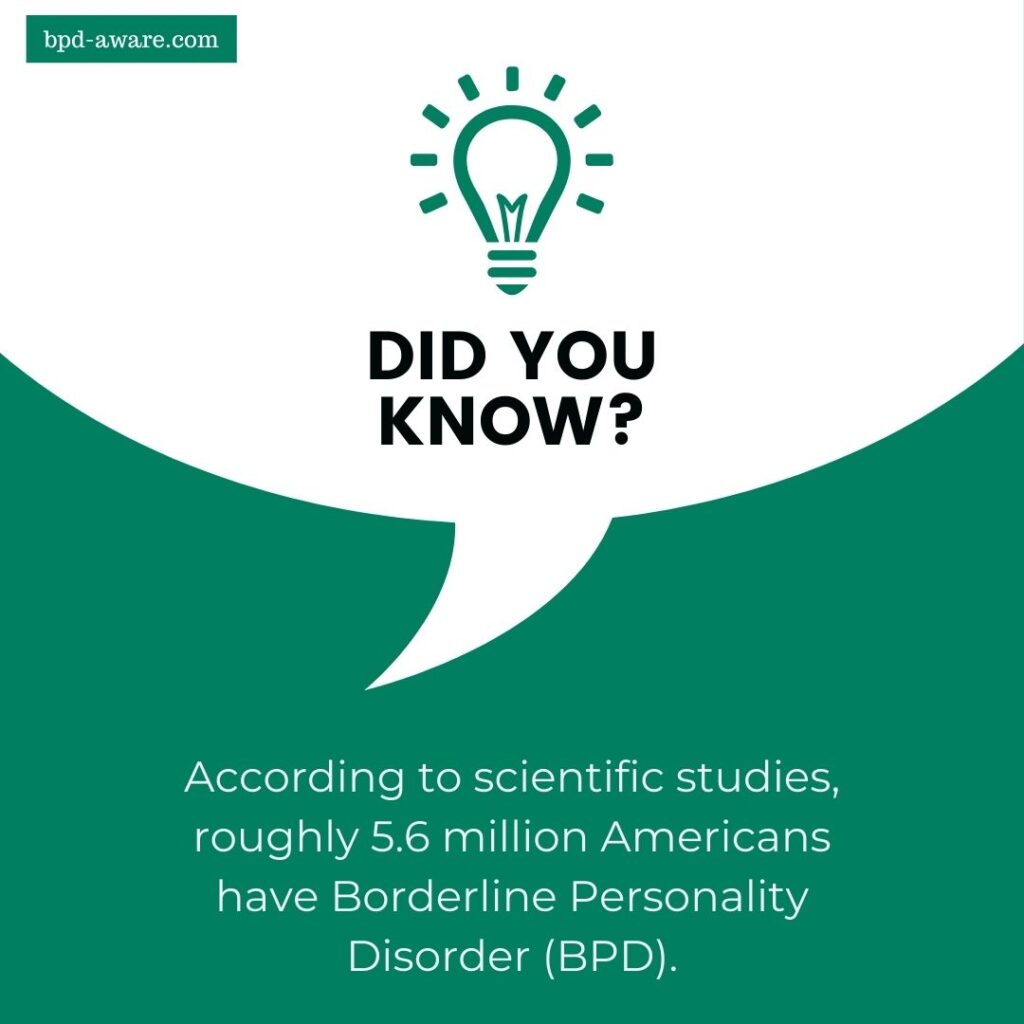Borderline Personality Disorder (BPD) may not be as prevalent as conditions such as depression and anxiety, however, it is still widespread among the population. How widespread is BPD? That’s what we’re going to look at in this article.
There are, of course, some limits to how well we can answer this question. Different studies have different answers and there can be quite a wide range in their findings, as we’ll discuss later. We also need to consider the context and location of the studies. Most studies into BPD have taken place in the United States and it’s important to note that the prevalence of BPD in one nation could be quite different to the rest of the world. Still, all we can do is work with the information we have available, with the caveat that it’s unlikely to be 100% accurate.
To answer the question of how many people have BPD, we’ve sourced three separate studies that have looked into the prevalence of Borderline Personality Disorder among the population. These three studies will be posted at the end of the article, in case you want to read them for yourself, although two of these are studies you will need to pay to read.
The percentage of the general population that has BPD ranges from as low as 0.7% and as high as 2.7%, which is quite a wide range. What we will do is take the lowest figure and the highest figure and extrapolate an average of both of them, which gets us a figure of 1.7%. 1.7% of the population might not sound like a massive figure, but for a nation like the United States, which has a population of 333 million (as of 2022), that means 5.6 million of its population could have BPD.
Comparatively, 96 million Americans have suffered at least one depressive episode during their lives and roughly 103 million Americans have experienced an anxiety disorder at some point in their lives. While these numbers dwarf the number of people with BPD, it’s important to note that BPD generally has a much more serious effect on people with the condition. People with Borderline Personality Disorder also often suffer from depression and anxiety on top of their BPD.
Using that 1.7% figure to extract the total number of people with BPD across the entire global population gets you a figure of just over 137 MILLION people. That’s 137 million people who suffer from severe symptoms like a fear of abandonment, rapid mood swings, chronic emptiness, and unstable relationships. Many of these people won’t even know they have BPD, and many of those who do know, or at least suspect, won’t have access to treatment.

As mentioned earlier, we don’t know if the rates of BPD are the same in the U.S. as they might be in other places. The kind of socio-economic inequality that we witness across the United States, along with the lack of affordable healthcare, could cause an elevation in the number of people with BPD. However, other studies state even higher percentages of BPD prevalence within the general population, with one study noting that 6% of the population is estimated to have BPD.
Final Thoughts
According to our extrapolation of scientific studies, over 5 million people in America alone have BPD – and this number jumps up to 137 million people worldwide. While this can only ever be a rough estimate, it’s still a truly stunning figure.
Imagine 137 million people across the world struggling with a serious mental health condition that impacts much of what they do on a daily basis. In fact, you don’t have to imagine because that is the reality of the situation. And that just accounts for BPD. It doesn’t even take into consideration other personality disorders like Narcissistic Personality Disorder, Antisocial Personality Disorder, Paranoid Personality Disorder, Schizoid Personality Disorder, and many more. All told we could be looking at BILLIONS of people suffering from poor mental health each and every day.
This shows just how vital it is that we, as a society, invest more money into mental health at all levels: research, prevention, and treatment. Just how much better could life be, not just for people with mental health conditions, but everyone around them, if the proper investment was made? Because mental health doesn’t just affect the individual, it affects everyone around them.
If you’d like to discuss this article, feel free to leave us a comment below or join our BPD forums where we’re always available to talk.

Sources, Resources, and Further Reading
- Prototypic typology and the borderline personality disorder: https://pubmed.ncbi.nlm.nih.gov/6619404/
- Personality Profile of Women Affected with Borderline Personality Disorder: https://pmc.ncbi.nlm.nih.gov/articles/PMC3655790/
- Personality disorders: community prevalence and socio-demographic correlates: https://pubmed.ncbi.nlm.nih.gov/28961462/
- Borderline Personality Disorder Statistics: https://www.verywellmind.com/borderline-personality-disorder-statistics-425481
















